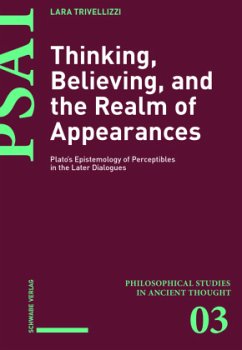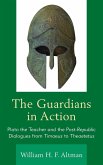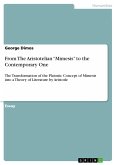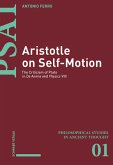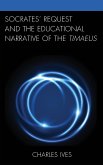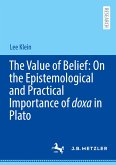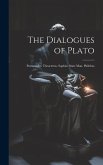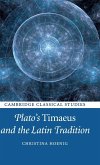This book investigates Plato's later theory of knowledge with regard to perceptual cognition and its epistemological status. It is argued that, in Plato's later dialogues, the three main cognitive phenomena related to acquaintance with the realm of perceptibles - sense-perception, appearance and belief - undergo a process of reciprocal conceptual disentanglement. As a result, the notions of sense-perception and belief get disambiguated and clearly separated from the notion of appearance. In addition, those notions are integrated into an innovative epistemological model, whose accuracy and reliability is clearly superior to the model previously embraced in the early and middle dialogues. In these dialogues, indeed, sense-perception and belief were still conflated with each other and with the problematic ("sophistic") notion of appearance.
Hinweis: Dieser Artikel kann nur an eine deutsche Lieferadresse ausgeliefert werden.
Hinweis: Dieser Artikel kann nur an eine deutsche Lieferadresse ausgeliefert werden.

